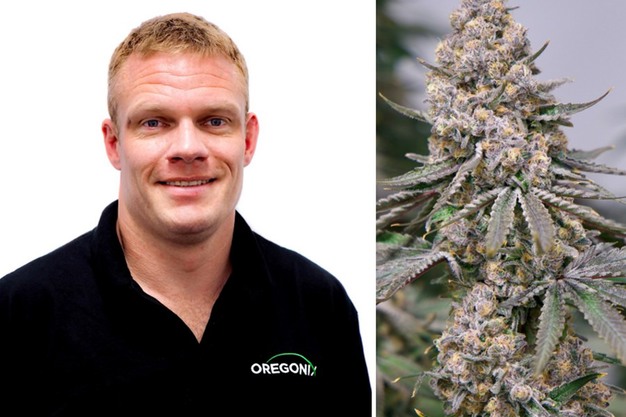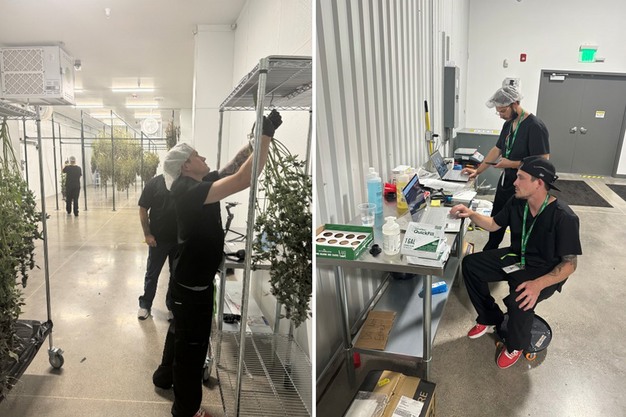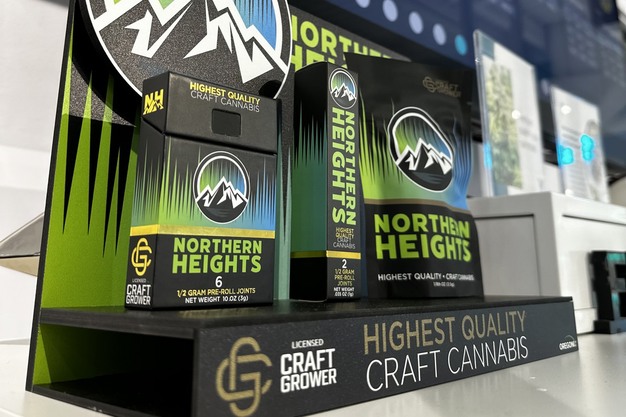"Located in Huntley, Illinois, just outside of Chicago, our farm features a modest footprint. Our current operations span 5,000 square feet dedicated to flower production within our advanced 27,500-square-foot phase 1 cultivation facility. We have ambitious plans for expansion, aiming to increase flower production space to 14,000 square feet, along with adding a processing facility and an infusion kitchen in our phase 2 development," says Owen Papworth, Co-Founder and Chief Operations Officer at Oregonix Farms, which sells its products under the brand Northern Heights.
Owen's journey in cultivation began over two decades ago alongside his brother, under the Oregon medical cannabis program. "Back then, the wealth of information and technological advancements available today were inaccessible. Witnessing and contributing to the industry's evolution has been a remarkable experience. We transitioned from cultivating outdoor sun-grown flowers to indoor operations equipped with top-tier HVAC systems and computerized fertigation systems for crop steering," Owen says.
Owen Papworth
Craft production
Oregonix Farms' decision to focus on craft cannabis production was inspired by Illinois' issuance of new craft grow licenses. "This presented us with a prime opportunity to extend our expertise from Oregon's cannabis industry to Illinois. This strategic move was driven by our desire to make a significant impact on the Illinois cannabis market, leveraging our extensive experience."
Owen explains that craft production in cannabis is distinguished by its commitment to quality, sustainability, and innovation. "Our approach involves small-batch processing and a high level of care and attention for each square foot of canopy, which is emblematic of craft values. This method allows us to not only achieve optimal yields but also significantly reduce our environmental footprint. By focusing on these principles, we ensure that our production not only meets but exceeds medical-grade standards, despite our primary focus on recreational cannabis," Owen says. "We've cultivated a unique genetic library at our facility, offering a wide variety of terpene and cannabinoid profiles that embody the ethos of Oregonix Farms: quality over quantity. Our selection process emphasizes terpene profiles and cannabinoids, though we also consider lineage and popular strains. Ultimately, we select strains that resonate with our team's preferences, believing that our passion translates into superior products for our customers."
Sustainability is also an important aspect for the company. "Our sustainability efforts include utilizing a renewable water source and treating runoff to prevent nitrogen pollution in local wetlands and watersheds. Additionally, Oregonix employs one of the most efficient cooling systems available, earning significant rebates from government entities for its environmental benefits."

A significant opportunity, but also a challenge
According to Owen, the burgeoning demand for premium cannabis in Illinois has been palpably underserved until recently. "This presents both a significant opportunity and a formidable challenge for local growers seeking to enter and thrive within this evolving market," he says. "Particularly, the Illinois cannabis landscape is characterized by a few entrenched competitors, giants who enjoyed a considerable head start. This dominance has made the market especially tough for new entrants, notably for craft producers aiming to distinguish themselves with high-quality, artisanal products. These newer players are not only up against the large-scale operations of these established companies but also restrictive caps, such as the 14,000 square-foot limit on growing space, which further complicates their ability to scale and meet the soaring demand for premium products. Consequently, while the appetite for high-grade cannabis in Illinois offers significant potential for local growers, surmounting the steep hill to build a successful company and brand in this competitive and ever-evolving environment demands innovative strategies, exceptional quality, and robust community engagement," Owen concludes.
For more information:
Oregonix Farms
www.oregonixcraft.com
